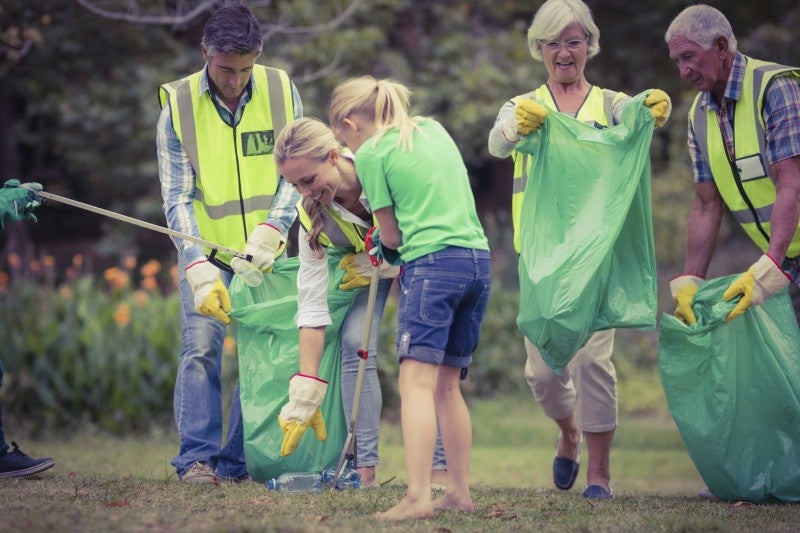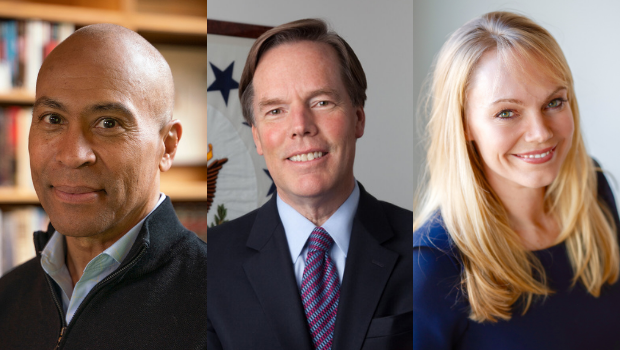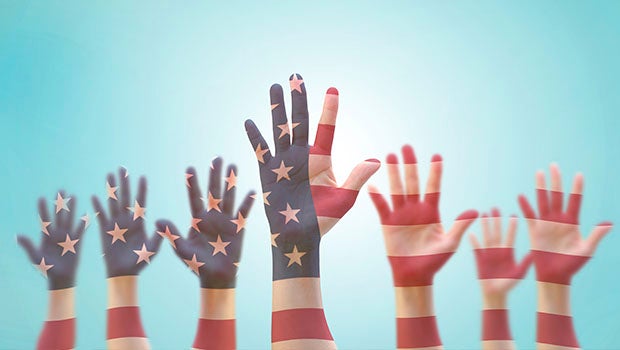
Photo Credit | iStock Photo
The Aspen Institute Franklin Project has recently become part of Service Year Alliance, a bipartisan organization committed to making a year of full-time service — a service year — a common expectation and opportunity for young Americans of all backgrounds. Service Year Alliance is the result of a merger between the Franklin Project, ServiceNation, and the Service Year Exchange. Learn more about this partnership by visiting The Franklin Project’s website.
As we reflect on President’s Day and honor our nation’s leaders, it is also worth reflecting more generally on service to country.
In the dark days following 9/11, I enlisted in the US Army. It wasn’t necessary for me to enlist. I had a comfortable upbringing, and an even more comfortable career path. Surely it wasn’t expected for me to join the Army. But in that moment, watching the attack, I knew that young Americans would at some point be called upon to do something somewhere. And, I felt that calling. It was my time.
Now, as my time in the Army has come and gone, I continue to reflect on what I’ve learned. I walked away from this experience with more than scars and memories of the blistering Middle-Eastern heat. The benefits of national service stick with me as I envision a better future for America. For instance, my time in the Army taught me how powerful it is when people of different religions, ethnicities, and socioeconomic backgrounds come together for a common mission.The soldiers in my unit and I learned to reinforce each other in combat and work together as a team, despite our differences.
A gruff specialist from Boston was side-by-side with a moon-eyed private from Kansas, a religious kid from the Chicago’s inner-city, and the college kid raised in a cul-de-sac. This certainly was a true blending of regions, races, religions, and socioeconomic backgrounds.
We found that we shared the same emotions, the same fears, the same anxieties, and the same triumphs, regardless of what we looked like and were we came from.
Imagine how this sort of blending, on a larger scale, would improve the health and character of our nation.
The reality is, there are immense societal benefits that could be gained by having a larger percentage of the population take part in something akin to the experience that I had in the Army — whether it is in the Peace Corps, AmeriCorps, City Year, or any number of other service opportunities.
As I thought about how the incalculable benefits that a year of service could have for all Americans and for America, I came across the Franklin Project at the Aspen Institute. The Franklin Project has been calling for a year of service for all Americans between ages 18 and 28. While not necessarily calling for a compulsory service year, they are, as first steps, looking to expand resources to ensure that there is enough supply to meet the demand for service opportunities and to start to create an expectation of service for all Americans.
The Franklin Project itself has been a powerful exemplar of the power of blending sectors in action, not just at its highest levels — with the involvement of those like City Year Founder and Franklin Project Co-Chair Alan Khazei and Republican former Defense Secretary and Franklin Project Leadership Council member Robert Gates — but also at the tactical level, where working members of the group represent teachers, urban planners, intelligence analysts, and former military officers.
If we look back to the Greatest Generation, some 77 percent of America’s representatives — in city halls, statehouses, and Congress — had served in the armed forces. A majority of all Americans had served in some capacity or at least had a family member who had served. Today, we all rest in the achievements of that generation: civil rights, voting rights, Medicare, putting a man on the moon, and more. These acts and achievements required cooperation that transcended party and ideological lines, acts and achievements which seem almost inconceivable in today’s divisive political climate.
Come back to today and we’ll see that less than 1 percent of today’s youth have served in uniform. And the relational, political, socioeconomic, and cultural divides have never been greater.
Sadly, the Greatest Generation’s sense of common mission — whether in training or in service or back home — is lacking in American society today.
To me, it’s abundantly clear: to make America great again, we should be asking our young people to serve in some capacity. If we want to replicate the great social successes that have brought America to where it is today, we should take seriously this call to national service and build on the work of the newly formed Service Year Alliance. The future of our nation depends on it.
Joe Goodwin is the founder National Service Now, a nonprofit advocating that young Americans volunteer for a “service year” through the Peace Corps, Teach for America, City Year, AmeriCorps, the Military, or other public service organizations.

